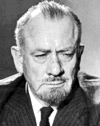题目内容
The novel “The Da Vinci Code” _____ a great success and was translated into 44 languages in 2004.
A.appreciated B.enjoyed C.won D.seized
C

“Reading makes a full man” (Bacon, 1597). Novels written by the writers like Jane Austen, Victor Hugo and Ernest Hemingway help us to know more about our history, culture and many other things.
|
Jane Austen was one of the most well-known women writers of the world. She was born in England in 1775. Jane loved reading and writing. She wrote a number of famous novels in her life. Among them, Pride and Prejudice written in 1779 was the most popular. |
|
Victor Hugo, born in 1802 in France, was one of the best writers in the19th century. The talent in writing and hard work brought great success to Hugo at an early age. His most popular novel, the Hunchback of Notre-Dame, was written in 1831. The book was so successful that it was quickly translated into many other languages across Europe. |
|
Ernest Hemingway, an outstanding American writer and reporter, was born in 1899. His life experience had a great influence on his writing style. Hemingway lived in France and Italy between the 1920s and 1950s. Most of his books such as The Sun Also Rises were written at that time. He won the Nobel Prize in 1954 mainly because of the novel The Old Man and the Sea. |
1.When was Jane Austen born?
A. In 1775 B. In 1799 C. In 1802 D. In 1899
2.Where was Victor Hugo from?
A. England. B. America. C. Italy. D. France.
3.Ernest Hemingway won the Nobel Prize mainly because of _________.
A. The Hunchback of Notre-Dame B. Pride and Prejudice
C. The Old man and the Sea D. The Sun Also Rises
 Steinbeck, John, 1902-68, American writer, born in Salinas, Calif., studied at Stanford. He is probably best remembered for his strong sociological novel The Grapes of Wrath, considered one of the great American novels of the 20th century. Steinbeck's early novels-Cup of Gold (1929), The Pastures of Heaven (1932), and To a God Unknown (1933)-attracted little critical attention, but Tortilla Flat (1935), an affectionate(亲切的)yet realistic novel about the lovely, Spanish-speaking poor of Monterey, was enthusiastically received.
Steinbeck, John, 1902-68, American writer, born in Salinas, Calif., studied at Stanford. He is probably best remembered for his strong sociological novel The Grapes of Wrath, considered one of the great American novels of the 20th century. Steinbeck's early novels-Cup of Gold (1929), The Pastures of Heaven (1932), and To a God Unknown (1933)-attracted little critical attention, but Tortilla Flat (1935), an affectionate(亲切的)yet realistic novel about the lovely, Spanish-speaking poor of Monterey, was enthusiastically received.